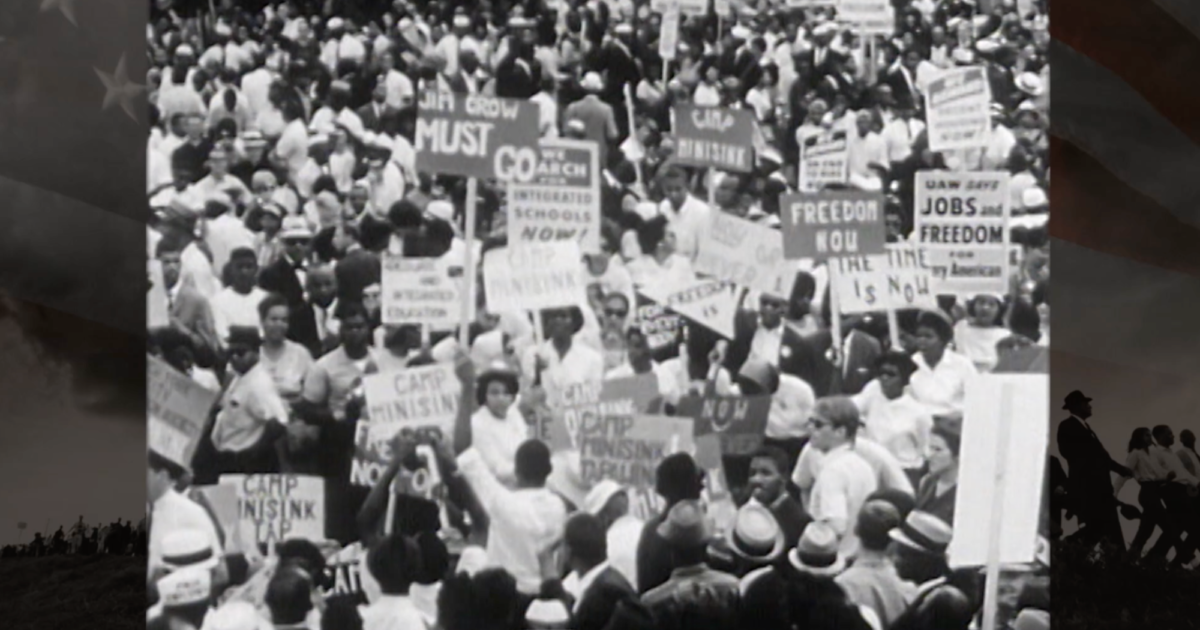
What connection does Motown Records have to the 1963 March on Washington?
When Rev. Dr. Martin Luther King, Jr. agreed to lead the Detroit Walk to Freedom, Motown Records founder Berry Gordy recognized how historic this event would be so he offered his Hitsville studio resources to record King’s speech.
Although he had previously shied away from making political statements with his star-making record company, Gordy believed that this speech, as well as many other Dr. King’s speeches, should be heard by everyone.
Similarly, Dr. King had previously disapproved of Motown’s sound as he felt it often blurred secular and church music, but was convinced after meeting in Detroit. Motown records released “The Great March to Freedom: Martin Luther King Speaks, June 23, 1963.”
After the Walk to Freedom, Gordy made an arrangement with Dr. King to record more of his speeches, including his remarks just two months later at the historic March on Washington for Jobs and Freedom. So Motown Records and its founder Berry Gordy make an agreement Rev. Dr. Martin Luther King, Jr. to record his speeches after the Detroit Walk to Freedom in June 1963.
On August 28, 1963, the day of the historic March on Washington for Jobs and Freedom, Berry Gordy had arranged to record Dr. King’s speech. Motown Records’s music production experts set up a microphone at the speaker’s podium. The one where people like Dr. King and Congressman John Lewis, then-leader of the Student Nonviolent Coordinating Committee, would give speeches to the estimated 250,000 attendees. The one where vocal powerhouses Mahalia Jackson and Marian Anderson would sing.
Motown’s was not the only microphone at the March on Washington, but it was one that captured Dr. King’s I Have a Dream speech, in its entirety, with flawless sound quality.
After Dr. King’s death in 1968, Gordy released a compilation of Dr. King’s speeches and sermons under his Motown label. Gordy later established a spoken-word label that included poetry and speeches by leading Black intellectuals. Gordy launched Black Forum in 1970, and released Dr. King’s speech “Why I Oppose the War in Vietnam” under the label. Gordy cared deeply about the historical record of the civil rights movement. In 1998, when Gordy sold Motown to MCA, he gave the sole master copy of the recording from the March on Washington to Dr. King’s widow Coretta Scott King.
Special thanks to DPTV for their work in highlighting Motown Records' part in the historic 1963 March on Washington for Jobs and Freedom.
ncG1vNJzZmivp6x7sa7SZ6arn1%2BWv7W1wqWcrGecmq6zuoyamaitpGLBqbGManBva12irrOvx2amp2WnlsCptc2gq6imXZu8s3nJqJmsZZGjsW6y0Z6cnaed